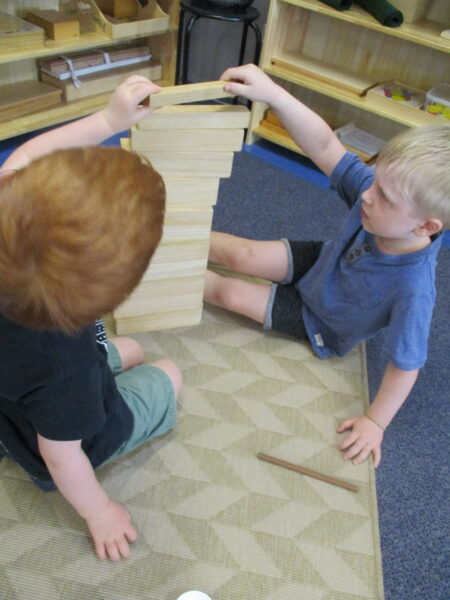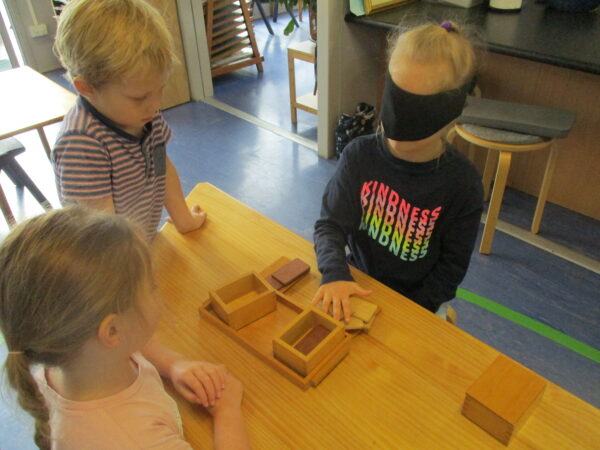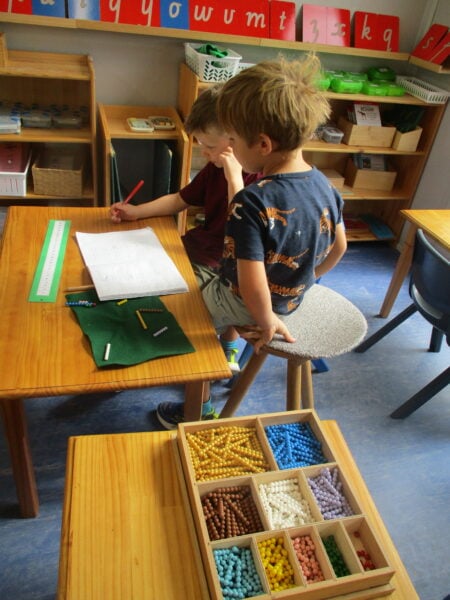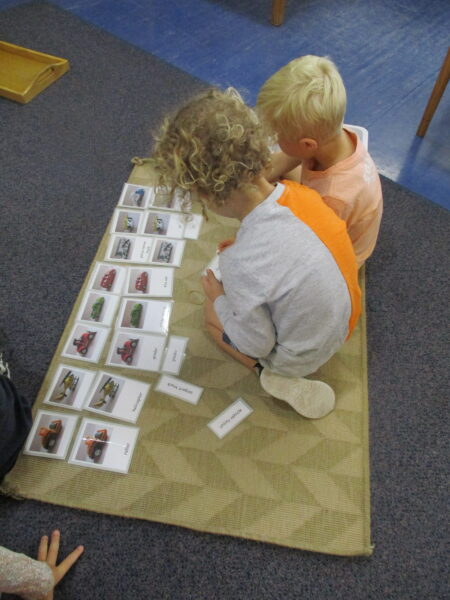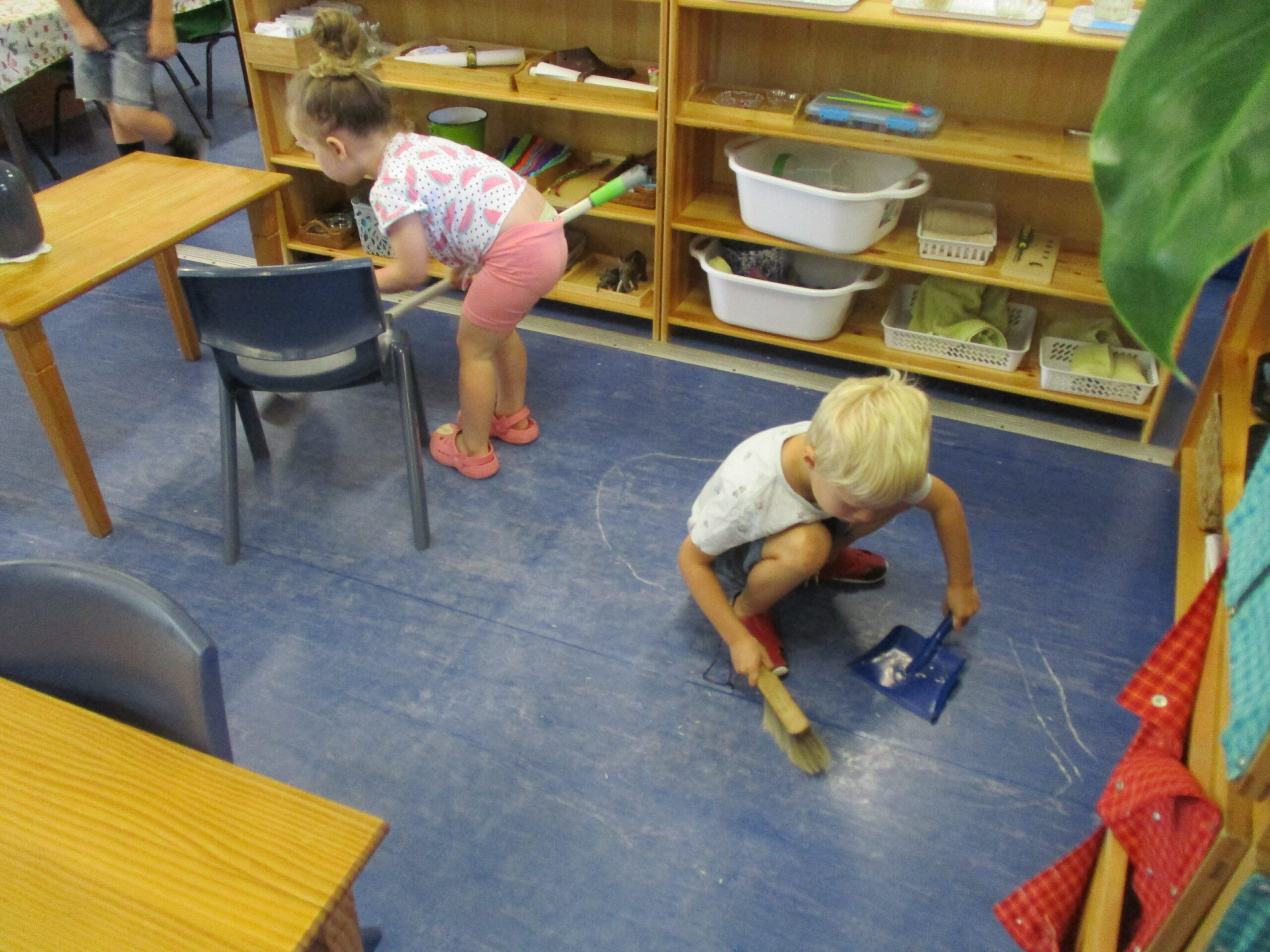“Two things are necessary, the development of individuality and the participation of the individual in a truly social life”.
Maria Montessori
We often hear and talk a great deal about the development of independence and concentration during the three years that a child spends in a Children’s House at a Montessori school. As important, and never more so than now, is the child’s social and emotional development – and this happens so beautifully in a Montessori environment if we take a quiet moment to see it.
Dr Montessori told students in a 1946 teacher-training course that children “need the society of other children at this age”. The activities available to the children in a Montessori classroom are “purposive”—they are able to be performed by the children for both selfish and social ends. When children work in this way they increase their level of independence and come to realise that their actions benefit others.
As well as learning to scrub, sweep and tidy their environment so that everyone can enjoy the space they work in, there are also the exercises of Grace and Courtesy. These help children control their bodies and move more gracefully while giving them the courtesies of social life, the “pleases” and “thank yous” that are the basis of good manners. There are constant opportunities to experience and form close relationships with other children and the adults in the environment, helping form the child’s personality. They respond with gratitude, trust and respect for those who are willing to help them orient themselves in their world. They evolve a sense of worth, security and a means for emotional expression, along with autonomy and independence. The Montessori classroom is a great place to develop social and emotional intelligence in preparation for life.
“We shall walk together on this path of life, for all things are part of the universe and are connected with each other to form one whole unity”.
Maria Montessori
